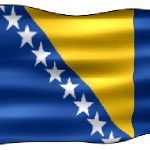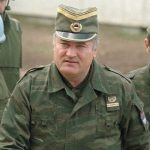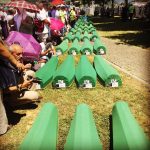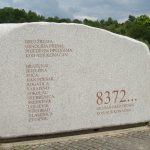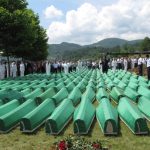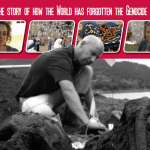The genocide in Bosnia remains the biggest organised slaughter of Muslims in modern Europe.
Find more information about this campaign below.
Background information
After the break-up of the former Yugoslavia in 1992, the newly declared republic became the subject of irredentist claims by neighbouring Serbia and Croatia.
The subsequent war left an estimated 100,000 people killed and saw unspeakable atrocities including the re-emergence of concentration camps in Europe for the first time since World War Two.
At the height of the bloodletting, over 8000 unarmed men and boys seeking refuge in the UN protected “safe-haven” of Srebrenica were massacred in cold blood by Serb soldiers.
The gruesome episode remains a salutary reminder of the evil depths to which humanity can sink in the name of ethnocentric nationalism. It is also a grim warning of the precarious status of Muslim minorities in Europe, even those that appear to be well integrated.
As the passage of time makes the tragedy more and more distant, IHRC strives to keep the memory of the Bosnia War alive in a number of ways including remembering Bosnia in our Genocide Memorial Day that takes place every year and supplying resources to schools to help them teach students about Bosnia.
Key facts & figures
During the genocide of Bosnians half of the population of Bosnia – around 2.6 million – were dislocated from their homes.
Rape became a weapon of choice for the aggressors with some 80,000 Bosnian women brutalised in this way.
MILLIONS
were forced to wear white armbands or put a white piece of cloth on their homes to mark their identity in a move eerily reminiscent of the treatment of Jews during the Nazi Holocaust.
Mass graves from the genocide are still being discovered over 25 years later – to date more than 550 have been found.
Statements
Your support helps our campaign
We work with different organisations from Muslim and non-Muslim backgrounds, to campaign for justice for all peoples regardless of their racial, confessional or political background.
Briefings
Open Letters
Choose from options and QUICK DONATE

